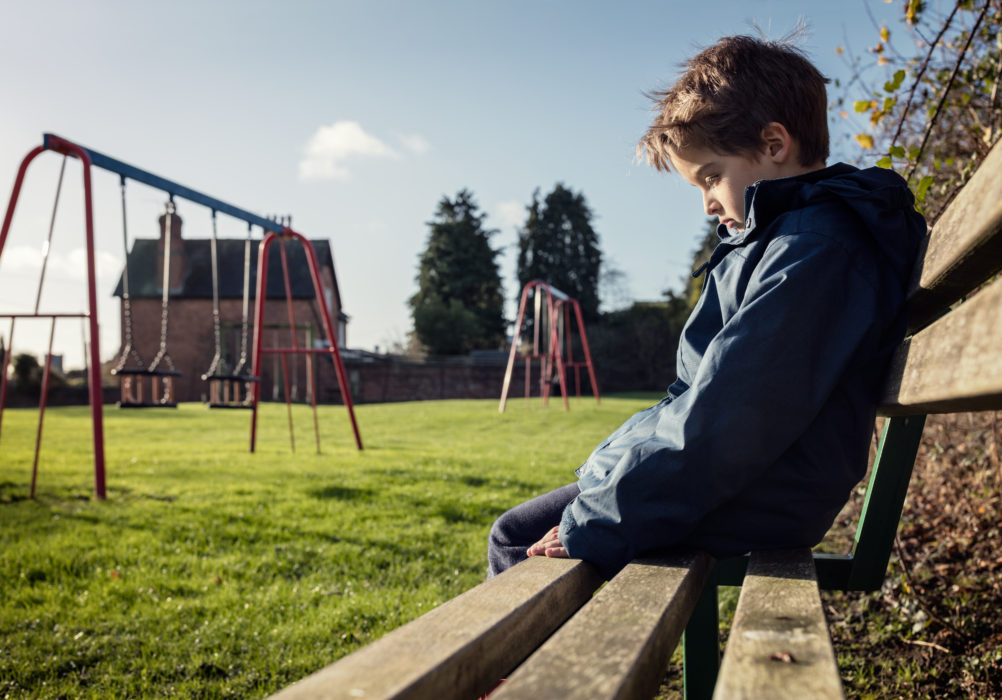“Belonging is as fundamental and basic as air and water. We can’t live fully without belonging to something larger than ourselves.”
Self acceptance and self understanding is frightening for an insecure child. Children who have a secure attachment to their caregivers have an ability to explore these facets about themselves because the believe (through experience) that others will love and protect them and that the world is predictable. What does a child do when they do not have this secure attachment?
The need to attach to someone else is an innate need for people. It’s the reason we form relationships throughout our lives. First with caregivers, then siblings, friends and eventually with lovers. According to Erikson’s Psychosocial Theory, there are predictable stages that people navigate throughout their lifetime. Beginning from infancy, children learn to trust, to explore, and achieve or we learn to fear, mistrust and that we are inferior. To try something and fail becomes devastating to the self for an insecurely attached child.
I was an outgoing child. Talkative, friendly and personable. I would take the hairbrush and dance and sing to Charlie Rich songs on the stereo and perform for my mother and her friends. I would go door to door in the neighbourhood and talk to random strangers for fun. I wanted to be around people and conversely hated being alone. In my teens and early 20’s, when I was at home alone I would often feel restless and unsure what to do with this nervous energy. So, I drank alcohol often enough to help resolve the anxiety I felt. But it didn’t eliminate the need to attach to someone.
In my early years, I internalized my mother’s anger toward me. In that way we were aligned, as crazy as that may sound. We were on the “same page” so to speak about how we both viewed me. The need to attach is powerful to be sure. As I grew up, this was a common theme in my life. It was too frightening for me to confront her because I would be left with nothing. So instead, regardless of what she would say, while there was a part of me that grew resistant to it over time, I would simply agree with her within myself that I was stupid, useless, lazy and the like.
As a teenager, my circles expanded into other activities such as Air Cadets (go 575 Terriers!!). For a while I felt like I belonged there. It was structure and I was good at it and equally recognized for my efforts. Until one day I was overlooked for a promotion which was a devastating blow to my ego so I quick the cadets in diva like fashion. Ironically my mother encouraged me to walk away although I’m not sure what her motivation was. But that departure left me feeling lost.
Shortly afterwards I started getting involved in a local youth group sponsored by some local churches. It was a bit weird, but the people were friendly and engaging and they seemed to care about me. Unfortunately, their care and concern were conditional. I was acceptable to the church only under certain conditions. My ex wife Beckie and I met when we were 17 years old through a mutual friend. She is on record for saying the “only time I had a curfew was when Tony was around.” That’s sums up concisely how I was treated by the broader church community.
Despite my struggles with the people of the church, I poured myself into religion. Again, it was someone or something I could attach too. I was asked by a pastor once why I continued to be involved in the church after they treated me so poorly. My response was “god’s people and god are not the same thing. And god wants me to be here so I’m here.” Of course, now I recognize my resistance to leave the church as a fear of abandonment. I was attached, regardless of how dysfunctional the relationship was between me and the church.
Don’t get me wrong. I still struggle with attachment for lots of reasons like the above. Abandonment is significant theme throughout my life that I will write about in another post. As an adult however, and as a therapist, I have taken time to learn how to belong to myself. This is still in process of course, but I am much more secure in myself today than I ever have been. I have challenged and rejected the shame messages I’ve heard from others but internalized over time. Instead, I have found my own core of personal power and the ability to choose my own path.
I appreciate that there is much more to unpack in this type of discussion including attachment styles and the impact of abandonment on the developing self. For now though, I want to conclude with hope. Just because an attachment to caregivers and others may not have been ideal, it can be repaired. If nothing else, we can belong to ourselves and that’s the start of a beautiful relationship.
